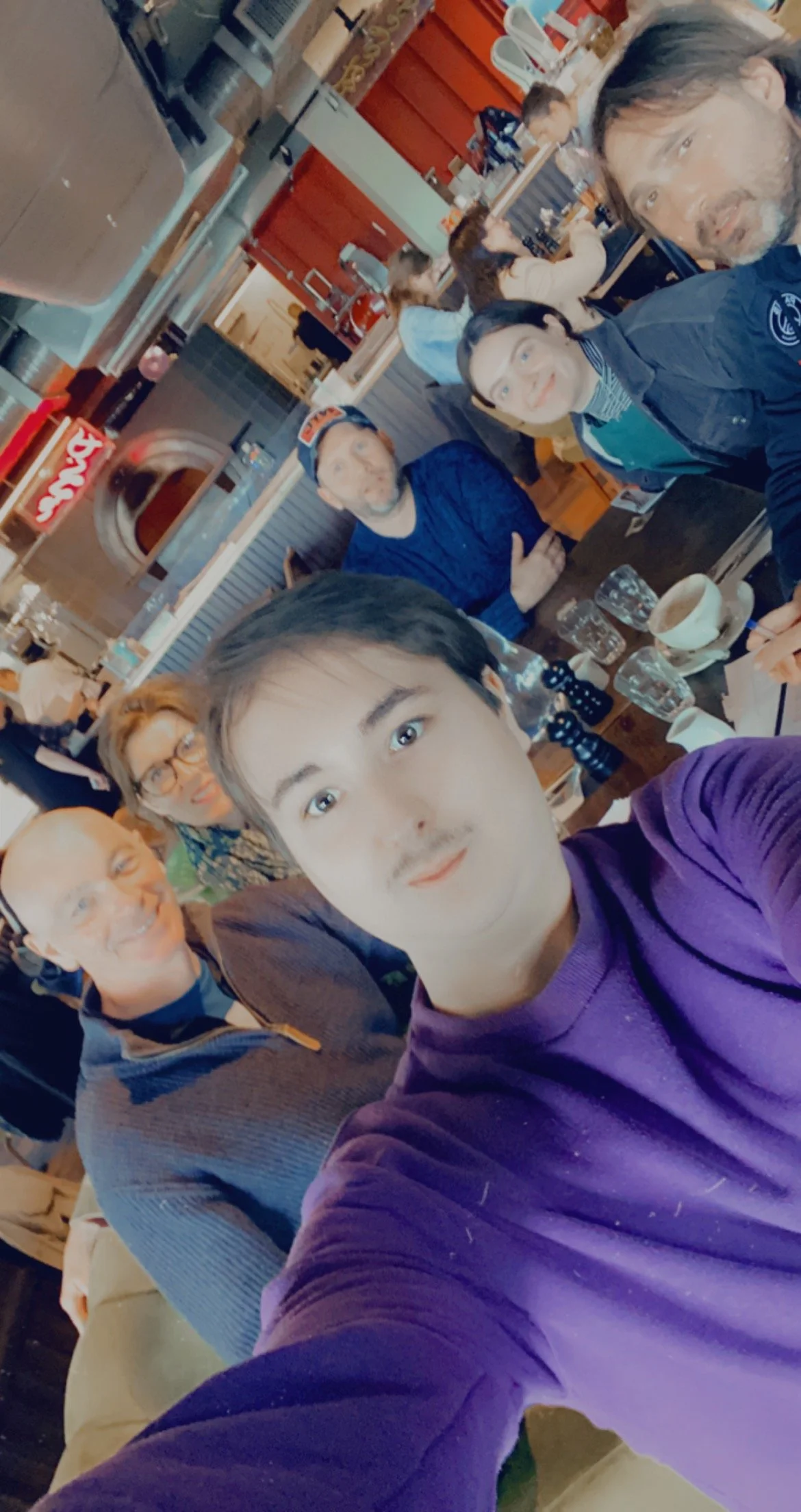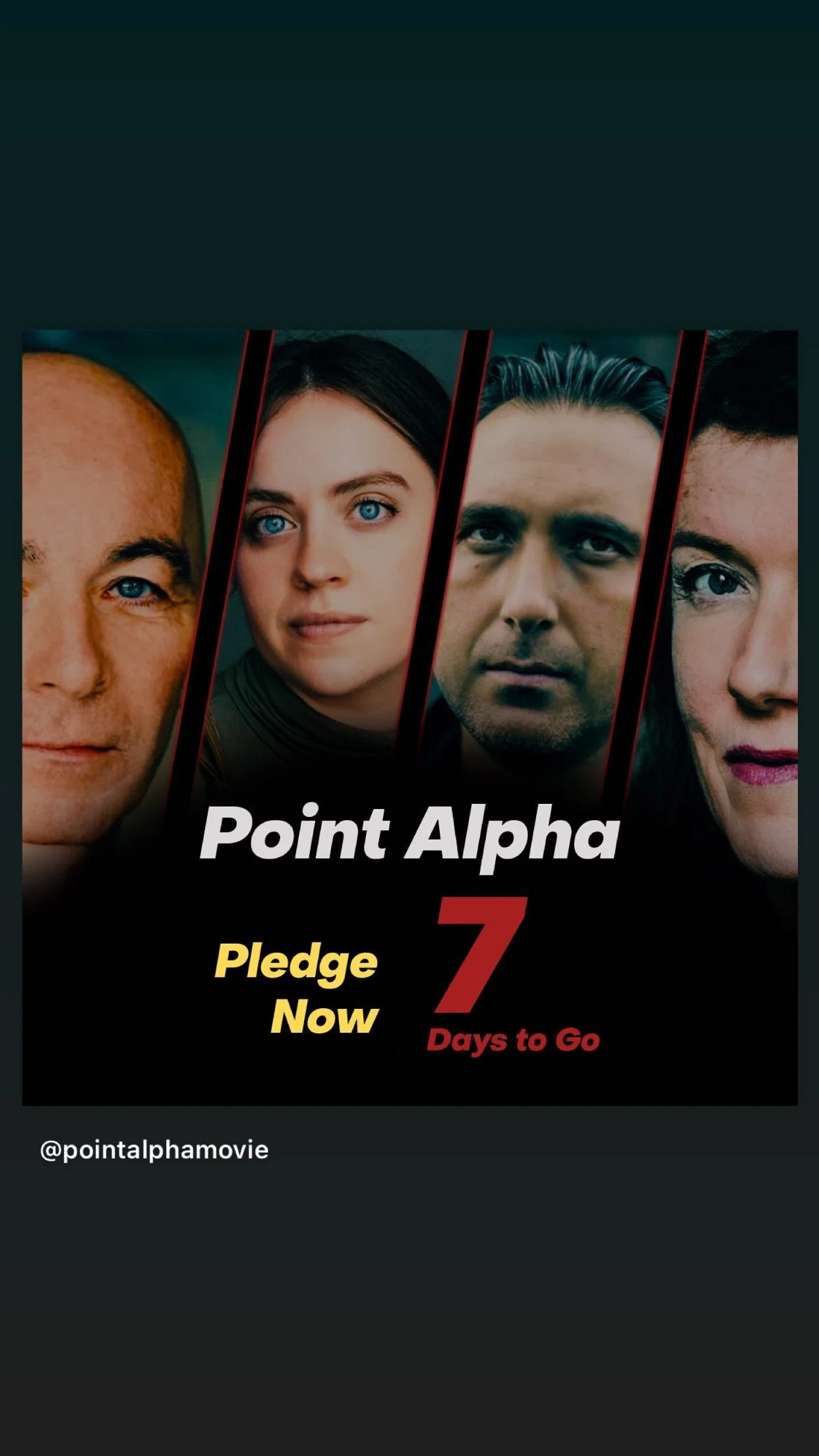DDL Smith: An Author Profile
DDL Smith is a novelist based in London whose stories trace the borders between mystery, technology, and folklore. His journey to the page was neither linear nor easy, but each turn, from theatre stages to film sets to hospital wards, forged the voice that now drives his fiction.
From an early age, DDL Smith was telling stories. He began with short tales inspired by Roald Dahl and Anthony Horowitz, but his first true stage came through performance. Drawn to musical theatre, he discovered the thrill of stepping into character, of transforming words on a page into energy that reached an audience. Those early years instilled a love not just of story, but of the collaboration and immediacy that live performance demands.
By his early teens, Smith’s storytelling impulse had widened into new forms. Surrounded by friends in drama groups, he began scriptwriting and experimenting with short sketches and films uploaded to YouTube. The process of writing with performers in mind, and seeing those words turned into scenes before an audience, gave him both confidence and a restless desire to keep creating.
At fourteen and fifteen, Smith’s passion for drama deepened further through theatre schools, where he encountered new styles and philosophies of performance. A formative highlight came when his group staged a Brechtian-inspired production addressing hate crimes against LGBTQ teens. Touring youth clubs, they performed for audiences who had often experienced such prejudice firsthand. For Smith, the production underscored how storytelling could be more than entertainment: it could educate, advocate, and challenge. That art can carry weight and responsibility that has remained a through-line in his work.
From there, film became the next step. At college, Smith studied TV and Film Production, sharpening his skills in dialogue, structure, and visual storytelling. He collaborated with Julian Shaw on the short Subject Point Alpha a couple of years after, which went on to international film festivals, and worked alongside a crew whose stories spilled off the set as much as they played out on screen. The director of photography, Barry Gross, regaled them with tales of working on Pirates of the Caribbean, giving Smith a glimpse of the broader film industry. These experiences confirmed his instinct: film was a crucible where rhythm, framing, and character voice could be tested and refined.
But film is a demanding world, and over time it slipped from his grasp. After a spell in bar work and, during the COVID-19 pandemic, cleaning ICUs (“mainly,” he says, “to defy the government and get out through lockdowns”), Smith found himself searching for new creative ground. His own struggles with depression in his late teens, and a period of recovery in hospital, had already sparked an early attempt at a novel examining systemic failings within the NHS. Though that manuscript stalled at 50,000 words, it marked a shift: storytelling in prose had become an outlet that film no longer could provide.
The true transition came later, when Smith, then writing marketing copy and business plans, felt the absence of fiction. Rewatching the BBC’s Sherlock inspired him to test the waters with a short detective novel. The result was the birth of Detective Dion: a figure who would anchor his creative future. Readers responded, and what began as an experiment grew into a series blending classic noir with modern anxieties. The Silent Blade and Tech Titans set the stage, while Grey Knight (2026) promises to carry Dion into darker territory still.
Smith’s creative orbit soon widened. Always fascinated by technology, and increasingly drawn to folklore through time spent in Sweden, he began shaping Decay (2025). What started with a friend’s love of skogsrå tales became a fusion of Norse myth, radiation science, and modern horror. Writing it meant poring through papers on acute radiation syndrome, then standing in the Nobel Prize Museum in Stockholm to see relics of Marie Curie firsthand. For Smith, research is never decoration: its ignition. An idea sparks curiosity, which sparks study, which in turn sparks imagination.
If his books dwell on crime, secrets, and shadows, they remain, at their heart, stories about people. “Even if it’s a thriller about privacy, or a horror rooted in radiation,” he says, “the core is always human. That’s what resonates.” His influences are broad, from Tarantino’s visual punch to the deductive cool of Sherlock Holmes, but all are united by the pursuit of stories that reveal humanity in moments of pressure.
Away from the desk, Smith is most at home in motion. Whether wandering New York’s restless avenues, tracing the quiet paths of Stockholm, or losing himself in the layered streets of Seoul, travel is less a pastime than a way of keeping curiosity alive. Each city offers its own rhythm, its own stories overheard in cafés, museums, and side streets. The little details of culture, history, and daily life linger long after the trip is over and become inspiration. Beyond travel, his fascinations extend to theatre, history, and even space exploration, pursuits that remind him how vast and varied the stage of storytelling can be.
Smith writes in the belief that fiction is not only escape but also education. Through careful research and imaginative craft, he hopes readers leave his books with knowledge as well as thrill: lessons drawn from the past, refracted through story, that might help prevent humanity repeating its darker mistakes. For him, every novel is both a puzzle and a mirror, a way of entertaining while also prompting reflection on the world we inherit and the one we are building.
Looking ahead, his ambitions remain firmly in the world of novels, though he wouldn’t mind seeing Decay adapted for screen. “A three-month holiday paid for by Netflix while I’m back on set,” he jokes, “would be a nice goal.” Until then, the writing continues. There are more puzzles to lay, more shadows to illuminate, and always another story waiting to be told; because for Smith, the work is never finished, only passed on to the reader to carry further.





